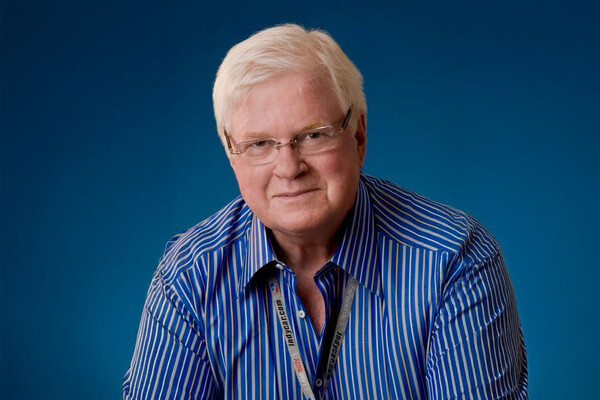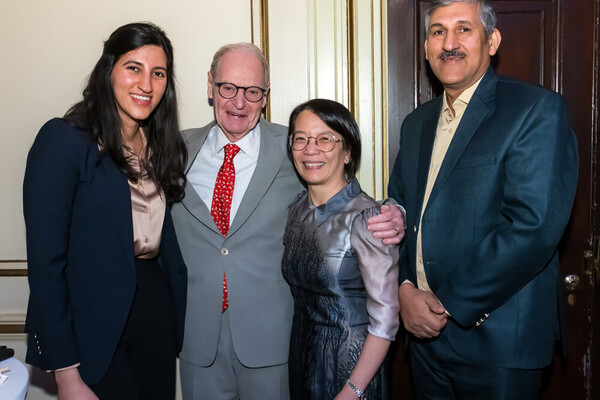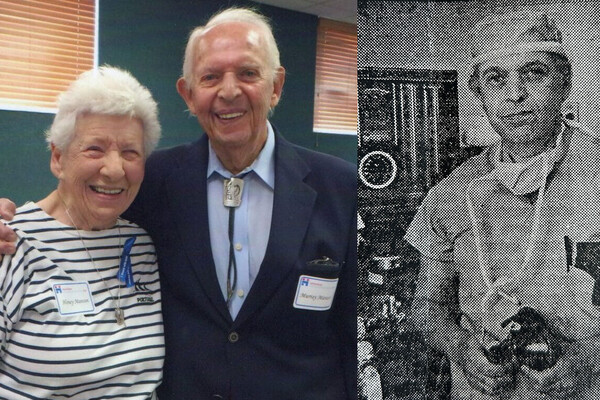Main Second Level Navigation
Breadcrumbs
- Home
- News & Events
- Recent News
- Mending Broken Hearts: Mitesh Badiwala, MD’04, PhD’13, PGME’13
Mending Broken Hearts: Mitesh Badiwala, MD’04, PhD’13, PGME’13

Mitesh Badiwala, MD’04, PhD’13, PGME’13 (Cardiac Surgery) is a surgeon-investigator and cardiac surgeon at the Peter Munk Cardiac Centre at the Toronto General Hospital (TGH). As a resident he was part of U of T’s prestigious Surgeon Scientist Training Program and received his PhD from the Institute for Medical Science.
His main areas of clinical interest are heart transplantation, mechanical circulatory assistance, mitral valve repair and minimally invasive valve surgery. He is also working on developing an Ex-Vivo Heart Perfusion system to resuscitate and evaluate donor hearts, which could mean more donor hearts could be made available.
Obviously there is hard work and dedication involved — but a lot of it comes down to serendipity and strong mentorship. And really, that’s the key to my success.
From performing heart transplants and repairing damaged mitral valves, to developing new technologies that will improve donor heart viability — Dr. Mitesh Badiwala is helping give patients a new lease on life. The U of T alumnus spoke with MedAlumni’s Julie Lafford about his work as a clinician scientist and cardiac surgeon, and the mentors who supported his career.
How did you become interested in transplant surgery?
When I was a junior resident I became involved in transplants — mostly in donor procurement, but I also got to see patients’ recovery. And of all the surgeries cardiac surgeons perform, the most dramatic changes occur in transplant. Patients with end-stage heart failure often struggle at home, and can barely walk a few steps. Or they feel like they’re drowning when they lie flat. Those lucky enough to have a transplant often see miraculous change, if everything goes well. They can go back to leading meaningful lives. They go back to work — one of our patients went back to becoming a firefighter. They run marathons, go back to school and back to caring for their families. That’s part of the reason I really enjoyed being part of transplant.
I imagine you don’t do heart transplants every day. What makes up the balance of your work?
Transplants are few and far between because of the lack of donor availability. The donors per population in Canada is not as high as other countries around the world. The reason for that is complex and multi-faceted, but all boils down to a lack of awareness — whether that is lack of conversations of intent with family members, or stigmas and stereotypes applied or perceived. At Toronto General Hospital (TGH) we do about 35 heart transplants a year, but it’s growing because of the upswing in donor awareness.
Aside from transplants, my specialty is valve repair, which is what I did for my fellowship in the U.S. As my practice grows and as cardiologists become aware that I can do this type of surgery, I get more and more referrals. I really love operating — whether its bypass surgery, fixing a valve or replacing a valve, surgery directly impacts a patient’s overall health immediately, and sometimes quite dramatically. To know it was me and my team making that impact is very gratifying.
You are early in your career and you’ve already achieved a lot, so what’s the next big challenge you’ll be taking on?
We’re embarking on some innovative avenues in heart transplantation for end-stage heart failure, and these are becoming more exciting as technologies evolve. We have developed a device that allows hearts to re-animate and start beating again, called ex-vivo heart perfusion. It’s a platform to take hearts that may have been turned down for transplantation due to age — or any number of factors — and try to repair them. The goal is to allow us to yield more donor hearts than those currently available. In parallel, we are trying to figure out how repair these hearts — what solutions to circulate through them, what pharmacological or therapeutic strategies we can use to try to augment heart function and speed up recovery.
Things we dreamt about 20 years ago are now becoming a reality. This technology could potentially become a platform for repairing the patient’s own heart and then transplanting it back into them, with pumps no longer needed. While pump technology is evolving quickly, transplantation remains the gold standard, and transplantation of the patient’s own organ would eliminate the challenge of immunosuppression in today’s transplant surgeries.
Did you have any mentors who helped determine the direction of your career?
The very first mentor I had at U of T was Heather Ross; she’s a renowned cardiologist, the Director of the Ted Rogers Centre of Excellence in Heart Function and Medical Director of the Cardiac Transplant Program at University Health Network (UHN). She was my mentor in my first semester of medical school when I wanted to learn more about what a career in cardiology would be like. She’s continued to be a mentor and role model for me today and we work alongside each other in the transplant program.
The second U of T mentor I had was a surgeon, Richard Weisel. He’s the past Director of the TGH Research Institute and is currently editor-in-chief of the Journal of Thoracic and Cardiovascular Surgery, the premier journal in our specialty. My first summer in medical school I approached him and I remember him asking me what I wanted to do. I said, “I want to do research with you” and he said, “No, what do you want to do with your life?” I wasn’t sure, but I knew I was interested in the heart and circulation, but I’m also very hands on and like to fix things, so I wondered if surgery was right for me. He graciously he allowed me to work in his lab and I did some great research and had some publications in high impact journals.
I have been blessed with many mentors who kept me focused and gave me career-building advice that has worked. Obviously there is hard work and dedication involved — but a lot of it comes down to serendipity and strong mentorship. And really, that’s the key to my success.
What words of wisdom do you have for current students?
Medical school is a time to learn broadly — try to learn as much as you can about all aspects of medicine. Once you whittle down to your particular subspecialty, you won’t have that opportunity again. And when you do fall in love with a specialty, run with it! If you end up loving what you do, you will never regret getting out of bed in the morning.
News


